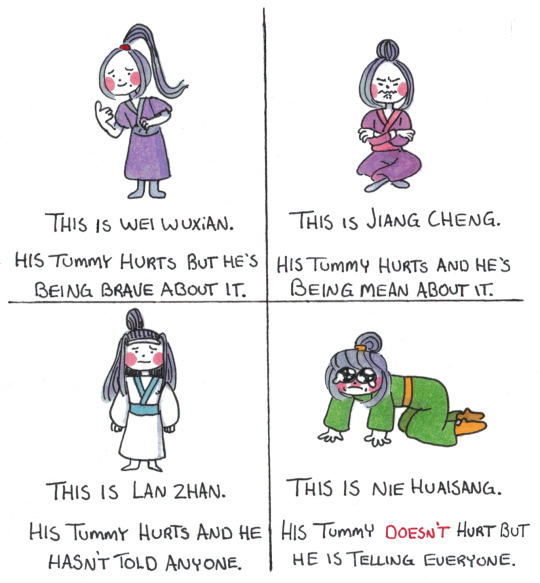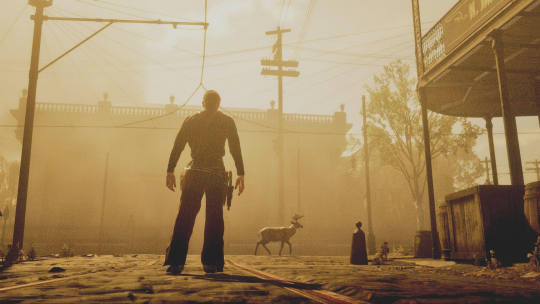#high analysis
Text
It fascinates me the differences between fandoms. Like some (Marvel, Harry Potter) have huge robust fandoms with zillions of fanfictions and its own discourse and also notoriety in the public view.
Others, (Percy Jackson, Twilight) are both very popular and have decent sized fandoms but those fandoms have far less fanfictions and a different type of discourse and more crack.
Then there's some that it seems doesn't even have a fandom, but once in a while a hot take post about something (The Golden Girls) will be insanely popular so clearly it at least has a fan base.
#fandoms#fandom#high analysis#tumblr#high texts#highposting#420#harry potter#percy jackson#marvel#not strictly marvel#high blogging#the mortal instruments
25 notes
·
View notes
Text
The Hunger games should be required reading and I am not joking
63 notes
·
View notes
Text
Say what you will, Stranger things really went off with the names.
Will Byers
Mike Wheeler
Eddie Munson
Robert Buckley
Just banger after banger after banger. These are real person names and yet they stick in your head and sound appealing. Incredible.
#stranger things#high analysis#high texts#high like eddie rn#will byers#mike wheeler#robin buckley#eddie munson#names
11 notes
·
View notes
Text
We worship the best plots as gods.
#high analysis#tumblr#high texts#highposting#420#what does this mean#why did it fly into my head#my thoughts#thoughts#writing#stories#storytelling#religion
1 note
·
View note
Text
EDIT: idk why y'all attacking me in the tags bruh this poll is satire. as a silver fox fucker, i very well know 50s is not granda age but this post highlights how some people think 20 or 30 years is an old man so this poll was from their pov just to tease them
503 notes
·
View notes
Text

The four alignments of Tummy Hurt
#poorly drawn mdzs#mdzs#wei wuxian#jiang cheng#lan wangji#nie huaisang#bonus comic#Brought to you by: *my* tummy hurts#This is in teen-era for the sole fact that it was imperative that Teen Wangji be granted that caption#I too was a teen with extremely high expectations that gave me stress stomach pain. There's no way lwj's tummy doesn't hurt all the time#NHS says his tummy hurts to 1) get attention 2) get out of situations 3) act as a distraction so the real tummy hurt havers can sneak out#I never would have thought making a tummy hurt alignment chart would be a character analysis but#The underpinning logic here is about how these guys go through the motion of pain. I have a lot of thoughts that would exceed tag limits#I also just want to take the time to say: You don't have to be brave about it. No matter the pain you face.#Your tummy can hurt and you can tell people and be loud about it <3
2K notes
·
View notes
Text
[spoiler] About Rocket's body
Just watched GOTG 1's interview and here's what Gunn said about Rocket's design:
"What if they broke his sternum and streched it out? Because raccoon doesn't really have a chest (like human's)"
And it makes me think about what HE did to Raccoon's bone structure.



Raccoon shoulders are curved to their chest so they can walk quadrupedally, but rocket walking on his two legs require his shoulders to be straightened out (hence the metals). They need to change his C-shaped spine into S-shape like humans, change the length of his arms... and deconstruct his pelvis entirely. Like. Entirely.


Because there's no way that raccoon pelvis can make him walk like a human. Also look at that body. My man looks like a gymnast with narrow waist and everything. While regular raccoons are just. A ball of floof.


Not to mention the brain surgeries he needs to go through.

With him able to lift big ass firearms with tiny hands, they must've replace his bones or muscles into something stronger.
Whatever HE did, feels less like trying to make "something perfect" and more like a child assembling and reassembling his toys because he can.
#marvel#mcu#guardians of the galaxy vol 3#guardians of the galaxy#rocket gotg#rocket raccoon#gotg vol 1#gotg vol 2#gotg#gotg vol 3#gotg 3 spoilers#high evolutionary#tam's marvel post#meta analysis
3K notes
·
View notes
Text


I need everyone to be aware that Rei took these photos SPECIFICALLY that beach candid
#love the idea that he picked up photography as a hobby so he can take a bunch of high quality family photos whenever#but the candid? that one is rlly special#he saw a nice family moment and immediately took the photo without even prepping kazu and miri#I could do a whole meta analysis on that alone it’s so special#I bet if you went throw his phone it’s nothing but family pics#buddy daddies#buddy daddies kazuki#kazuki buddy daddies#kazuki kurusu#buddy daddies rei#rei suwa#kazurei#rei buddy daddies#miri unasaka#miri buddy daddies#buddy daddies miri
3K notes
·
View notes
Text
guys. she did not “almost die to an apple and then named her child apple.” the apple was never going to kill her. she views it, symbolically, as when her destiny really started, because it was when she met the prince and got her happily ever after. it is like ashlynn being named slipper ella. it is like briar being named spindle. stupid, sure, but it’s about how apple was her entire life told by every person that her destiny was going to go exactly how she thought it would, down to her name. THAT is the point. it is nothing at all like being named gun after being shot. stop it.
#at least PRETEND like you have narrative analysis skills and a working brain#sockspeaks#ever after high#apple white#discourse
646 notes
·
View notes
Text

''the morning light, when it comes to me, it was there but I could not see''
Arthur’s life was profoundly shaped by his self-hatred, lack of self-worth and disbelief in the existence of kindness in a seemingly dark and cruel world.
I strongly disagree with the statement that Arthur only became a ‘’better’’ man after being diagnosed with tb. His struggle with his true/inner self is apparent as early as chapter one. ‘’You are not who you think you are, sir… which is lucky’’
He has lived a rough life, raised by criminals and surrounded by violence ever since he was born. It was installed in him early that his value lied within being a violent enforcer and he has lived this life since, knowing nothing else. As a highly aware person, Arthur's actions weight heavy on his soul. He accepts that his actions have consequences. He knows that a person who has caused so much suffering is not meant to have happiness in life. His way of life has caused him to believe that he is not worthy of love or redemption. He doesn’t want to believe that a person like him could be capable of any good. (a thing to note here is that imo, Arthur’s actions near his death weren’t attempts at redemption but rather a strong desire to do right and possibly be his true self.) This is why he keeps living as he does as it’s the only thing he’s ever known, it’s the thing that brings him profit, praise from the person he looks up to and he is already damned so he might as well continue living this life anyway.
The internal problem Arthur faces is that this violent, cruel way of life doesn’t align with what I’d call his true self/ideals. He is torn between the harsh reality he has known and an unconscious yearning for righteousness/love. To be able to carry on with his actions he must enforce certain ideals within himself, such as: I am bad, ugly, nasty, ignorant, mean etc. He also decides to see the dark side of reality, telling himself that the world is a grim dark place and this is just as things were meant to be. This is why he feels so uncomfortable being complimented for his good deeds, because a bad rotten person like him should not be able to do good. It breaks the image he has built for himself and he doesn’t want that happening. This can be seen a lot during the ‘’Money Lending and Other Sins’’ missions where he is unusually mean (even for his standards) to each of the debtors. Imo, he acts this way because he must truly convince himself of being a terrible man to be able to carry out a job which revolts him so badly. In the last debt collecting mission with J. John Weathers, it can be seen in his face/expressions how much he is struggling to put on a tough, uncaring, heartless act. He needs to maintain a ruthless persona to survive in the world he knows. He must convince himself of his own cruelty.
''Forgive me, but that's the problem. You don't know you.''
Contrary to Arthur’s beliefs, he is a naturally kind-hearted person who is unconsciously drawn towards kindness. And yes, even before he was diagnosed with tb. This can be seen in the people he respects the most and, in his willingness to help strangers (notice how he often does unnecessary acts of service for total strangers such as: carrying their things, holding out hands etc. even though they had already troubled him). Despite the life he has lived, Arthur does not enjoy violence, he does not enjoy hurting people. He doesn’t want to dominate over others. He thinks mostly about others and not about himself. This fact alone is very telling of his character.
He writes about Charles, a man who he truly respects: ‘’He’s a better man than me. He does not need to think to be good. It comes naturally to him, like right is deep within as opposed to this conflict between GOOD↔EVIL that rages within me.’’ A man who is not struggling with his inner self would not have written this. To me this clearly implies an inner desire to be a better man. He writes about his mentors: ‘’I love Dutch like a father, but in many ways, I love Hosea even more. He’s kind and fair and like a human being. Dutch is something else.’’ Clearly showing a preference for Hosea who is of a more gentle nature and shows genuine kindness. Unsurprisingly, these are the people who see through his dumb/though act and encourage him to drop it.
When he comes across Brother Dorkins for the first time, he writes: ‘’(he)was one of those innocent people who make you feel better about human beings and about yourself a little. Must be odd to see all that goodness in the world. Place always seemed dark and brutal to me.’’ Expressing how he does not see goodness in the world, implying lack of good examples/kindness/good experiences in his life. Yet, the monk leaves an impression and imo, this encounter (seeing genuine goodness) disrupts Arthur’s perception of what the world truly is. ‘’Just as evil begat evil your whole life long, so good may begat good’’ (what strengthens my belief in this, is the following, symbolic scene of Arthur realising the consequences of his actions right after picking up a crucifix. He was aware of them before sure, but is unable to truly ignore them now having seen it right in front of his eyes). If only Arthur was presented with more examples of goodness in his life.

''You have it in you... I can tell!''
His desire to do as much good as possible after realising he won’t live long is instant. This would not be the mindset of someone who did not already possess kindness in his heart. ‘’Know glory and forget about shame.’’ Arthur’s shame and self-loathing caused by his previous actions were what was holding him back from allowing kindness into his life. Knowing that he has limited time left has not made him into someone he wasn’t before. The diagnosis was a catalyst, allowing him to embrace that love/goodness truly does exist and accelerate the process of chipping away from the persona he has made for himself. This was a newfound understanding for him as in the past he was rejecting any notion of kindess. In himself and perhaps the whole existence of it. ‘’You keep hidden all that matters, even from yourself.’’
After being diagnosed, he writes: ‘’What kind of a man have I been? What kind of a man am I? What world is this we live in? A land of fury or a place of love? Am I being prepared for eternal damnation? Am I past any kind of saving? Is that all fairytales? Man ain’t got much good in him. I ain’t got no good in me… I don’t think and yet I see goodness. I see it. If not in me, in good folk. In Abigail and her love for Jack. In that silly monk. In Downes, I guess. Begging not for himself but for the poor, even though he was near starving himself. Maybe I don’t want salvation. Part of me has always longed for death.’’ This entry perfectly shows how deep Arthur’s self-loathing goes and just how much it has damaged him. As his journal allows a look into his true feelings, he truly does not see a single good thing about himself. He knew for a long time that the way he lives is detestable but he could not let go of it. Not because he didn’t want to, but because it’s all that he has ever known. He didn’t believe in anything else. This sudden acceptance of goodness has allowed him to see clearly, which was obscured from him before, and for the first time, enabled him to act free of past regrets for what is right.
⊹ ࣪ ⊹ ࣪ ⊹ ࣪ ⊹ ࣪ ⊹ ࣪ ⊹ ࣪ ⊹ ࣪ ⊹ ࣪ ⊹ ࣪ ⊹ ࣪ ⊹ ࣪ ⊹ ࣪ ⊹ ࣪ ⊹ ࣪ ⊹ ࣪ ⊹ ࣪ ⊹ ࣪ ⊹ ࣪ ⊹ ࣪ ⊹ ࣪ ⊹ ࣪ ⊹ ࣪ ⊹ ࣪ ⊹ ࣪
Arthur’s redemption is not about becoming a good man. It is about finding the strength to change and recognise your true self despite a lifetime of self-loathing and breaking free from destructive beliefs of the past.

In Arthurian legends a stag is a symbol of the unending quest of spiritual knowledge/enligtenment
#this is my own personal interpretation of arthur's redemption#i could expand so much more on this#the orange quotes are by blind man cassidy#please don’t even interact if you think arthur was just a killer incapable of goodness before he was diagnosed#the ironic thing is that so many people could see behind arthur’s front but he was blind to it#arthur morgan#red dead redemption 2#rdr2#this analysis is based purely on high-honor choices#i don't care if your arthur shoots up entire towns this analysis does not take individual open-world gameplay decisions into account#i did almost cry thinking about this#text post
392 notes
·
View notes
Text
Has it occurred to you that when an actor and the character they're playing are the same person it just means the director/producers really like that person's personality and thought they'd make a convincing character.
#actors#actors and their characters#high analysis#tumblr#high texts#highposting#420#this was originally about Jack Black#but then I decided it applies to RDJ too#and then several marvl actors#I thought this would really resonate with y'all#not strictly marvel
7 notes
·
View notes
Text
Yall know the trope where a person turns into a werewolf and they're forewarned that they're going to reverse to their basest instincts and they assume they're going to be feral killing machines who go around biting as many people as possible? And then what actually ends up happening is they transform, wailing dramatically at those closest to them to flee and then they. They turn into the equivalent of a puppy. Like sure, they're dangerous enough. But not to the ones they love.
Anyways that should have been what happened with Oz's transformation in front of Willow. Might go write a fanfic about it if I can get in his head enough, idk.
#high analysis#tumblr#high texts#highposting#420#buffy the vampire slayer#oz x willow#werewolves#tropes
5 notes
·
View notes
Text
I just finished this most recent fantasy high episode (I'm late, I know.) and so much shit happened, but I'm such a sucker for how tracker and Kristen's relationship has evolved, I'm gonna hyper focus on that for a second. And how fucking tragic this separation truly is, and how their dynamic has changed.
They're so awkward in a way thats so realistic. And actually, I think breaking up has helped them communicate with each other more effectively. Both Kristen and Tracker call each other out on their religion bullshit, in a way that's maybe not the nicest, but is truthful. And it's so upsetting that this truly was probably the best thing for both of them.
I think what fucks me up the most though, was actually the conversation between Nara and Kristen this episode. That comment Brennan made about Naradriel being exactly like Kristen, if Kristen had money. That hit something in me and I can't quite articulate why. It could just be a comment about how Tracker has a type, or perhaps alluding to how Tracker has an unhealthy tendency to try and "fix" people, just like she's trying to do with galicea even. But there's something in there to me, of Kristen possibly having this moment of "this girl is so similar to me, whats so different about her then? Why am I not good enough, but she is? Would Tracker have stayed with me if I had x y z" and just.. the fact that some part of Tracker is still attracted to Kristen, because fucking of course. Kristen is a great person, but Kristen's also a mess. Makes you wonder if she's going to do it all over again with Nara, and what happens to wolfsong when Naras family takes away that help.
So many parallels between characters this season, it has me going feral oh my god.
#echosfandomrambles#dimension 20#fhjy#kristen applebees#tracker o'shaughnessey#Naradriel#fantasy high junior year#fantasy high#media analysis#d20#dropout
161 notes
·
View notes
Text
guys i love bill seacaster so much and he's one of my favourite characters! i don't really care that he was a bad father to fabian because, and i know this will come as a shock to a lot of you, he's fictional
#if you ever see me loving immoral/bad characters its bc they are... fictional#i can love bill seacaster and thrive on doing characters analysis on fabian at the same time. stuff can be two things#dimension 20#d20#fantasy high#bill seacaster#fabian seacaster#fhfy#fhsy#fhjy#d20 fh
223 notes
·
View notes
Text
Woah some Les Mis genius just made a tiktok diving into the canonical parallels between Jean Valjean and St Nicholas:
Or watch on tiktok to boost this excellent person in the algorithm! They are clearly trying very hard to produce quality analysis about extremely important Les mis things like “Jean Valjean breaking into people’s houses to secretly give them money,” but do not have a lot of followers yet! :
#I wonder who this tiktok er is!#they seem to be really invested in the way Jean Valjean breaks into people’s houses to give them money#(it’s me)#I’m doing the thing Hugo does where he pretends the buff guy isn’t Valjean#but I’m pretending the first making a high effort analysis of Jean Valjean breaking into people’s houses to give them money isn’t me#les mis#Jean Valjean#the st Nicholas parallels !!#happy holidays though!#im assuming the offfical barricades tumblr might also repost this#but!#I wanted to post my own version with the kind of cheeky caption they wouldn’t use
333 notes
·
View notes
Text
Why Mr. Rochester and Bertha Mason Couldn't Get a Legal Separation; or, the Utter Madness of Marital Laws
So I saw a Jane Eyre post discussing why Mr. Rochester and Bertha Mason couldn't get a legal marital separation. I've thought a lot about this topic, and in order to procrastinate writing the final for my upper-level Brontë class, I've decided to write this sort of convoluted analysis instead. I know many others have written about this subject, but I wanted to explore a bit further on my own.
Preliminary context about me, the Brontës, their Byronic inspiration, etc.: I've learned a lot about 19th century British marriage laws recently in my classes on old British literature, as well as by having studied Byron, whose marital separation in 1816 was a notorious part of his history & also reverberated through 19c literature. He refers to this separation in many of his works, most famously in his notorious poem "Fare Thee Well." Harriet Beecher Stowe, the most famous American female writer at the time, was friends with Lady Byron and wrote a book defending her called "Lady Byron Vindicated: A history of the Byron controversy from its beginning in 1816 to the present time" (the original callout post).
Insanity accusations did factor in to Byron's separation. Many scholars have remarked how the Queens of Byronic Criticism, the Brontë sisters, took significant inspiration from their well-worn copy of Moore's biography Life of Byron when creating their works. The Brontës would have been very familiar with marriage laws not only due to their knowledge of Byron's trainwreck of a marriage, but also due to being well-educated women at the time who knew that marriage was the most important economic decision of one's life and could very well make or break a person. As a result, marriage plays a significant role in their novels.
More relevant preliminary context about the novel: Jane Eyre actually takes place in the Georgian era, despite most adaptations and anaysis presenting is as a Victorian piece due to the novels publication date (this drives me crazy; same goes for the other Brontë books). Marriage laws did not change drastically from the time the novel is set to the time Brontë was writing the novel, but things were a bit different socially. Rochester was also married 15 years before his attempt to marry Jane. According to this very good analysis, Rochester and Bertha probably married in or around the year 1793: https://jane-eyre.guidesite.co.uk/timeline.
Now, here are the reasons why Rochester couldn't separate from Bertha:
1) Insanity wasn't grounds for divorce/separation in the Regency era.
Rochester himself says that he couldn't legally separate from her because of her insanity, which presumably rendered any of her faults null on the grounds of that marital vow "in sickness and in health." This is possibly one of his biggest reasons:
"I was rich enough now – yet poor to hideous indigence: a nature the most gross, impure, depraved I ever saw, was associated with mine, and called by the law and by society a part of me. And I could not rid myself of it by any legal procedings: for the doctors now discovered that my wife was mad — her excesses had prematurely developed the germs of insanity [..]"
2) Divorce was nearly impossible anyway.
There had only been around 300 divorces in English history at the time. Almost all of them were husbands divorcing their wives for committing adultery. Only a handful of divorces had succesfully been obtained by women, and they were only in cases where the husband had committed incestuous adultery or bigamy, and was extremely physically cruel. So technically after his bigamy attempt, Bertha may have had more grounds to obtain a divorce than Rochester would have, if only she were lucid enough to do so. However, in that scenario infertility would have helped their case, and Adèle's existence would have harmed their case if he attempted to seek a divorce before marrying Jane. Though as the novel explains, Adèle is probably not his, she definitely would have been used against him, as would the fact that he kept Bertha's existence a secret in England. But he wouldn't have tried for divorce that late in the game anyway, considering it was one of the most difficult options.
3) Female adultery was your best bet at divorce or separation, and this probably wasn't applicable to Mr. & Mrs. Rochester.
Although some scholars claim that there is subtext hinting that Bertha was adulterous (which some adaptations, like the 2006, include), you needed substantial proof of the adultery, which Rochester may not have had if it did occur. Being a proud man, he also wouldn't have wanted to be humiliated in that way by letting it be publicly known (as shame is one of his main reasons for hiding their marriage to begin with).
However, I lean toward the idea that Bertha may not have committed adultery. If she definitively did, seeing how affected Rochester was by Céline cheating on him (he shot her lover in revenge and left her with a stipend), if he ever suspected adultery on Bertha's part then I'm sure he would have been at court the very next day. I also think Rochester tries not to be too much of a hypocrite, and he is well aware that he himself is an adulterer, so he probably doesn't want to accuse Bertha of a crime he's committed and which he couldn't definitively prove she did.
Rochester does talk about hating Bertha's "vices" when they lived together, citing drinking, arguing, cruelty to servants, cursing, her being "unchaste," a "harlot," etc. - the last epithets, combined with her supposed lack of morality, and her being described as seductive, heavily imply that adultery could be added to her list of offenses. However, if she did truly cheat on him as well, I don't see why he wouldn't plainly tell this to Jane as well. I would imagine it would be his first complaint, and it would probably be considered his most justifiable reason against her by their cultural standards.
I don't see why he wouldn't jump to take Bertha's infidelity as an opportunity to defend his own actions, considering how open he is with Jane about his own adultery and being cheated on by Cèline Varens. While I can see how some of the textual evidence may strongly suggest Bertha's adultery, we cannot be fully certain, and that may be because Rochester himself is not fully certain. I cannot see why he wouldn't have sought legal advice on that account alone.
In short, if Bertha was an adulterer, there must have been no evidence to convict her.
Also: while the double-standard may seem odd and trivial to us, the reason why female adultery held more weight than male adultery has entirely to due with old patriarchal inheritance laws; i.e the risk of a wife getting extramaritally pregnant and passing the illegitimate child off as her husband's heir was considered too great of an affront. A man could have as many bastards as he wanted because he would know they were bastards and were not at risk of inheriting his stuff. One needed legitimate heirs to justify passing on one's ancestral wealth to. Essentially, marriage was a mere economic tool, and the economy was and is inherently patriarchal. I digress.
4) Rochester's lack of social & economic leverage, and risk of social ruin in general.
Only the wealthiest of the wealthy could obtain divorce or official separation, and it often led to social ruin. Rochester is rich, but he has no title and no great network of supporters due to being a younger son and having been abroad for most of the past 15 years (this was the length of his marriage to Bertha, stated by Mr. Briggs during the bigamous wedding attempt). He doesn't have as much leverage as Lord and Lady Byron had.
To continue on official separation, like Lady and Lord Byron obtained. Just like divorce, this was also a messy and scandalous legal proceeding, and required numerous good reasons to obtain, and being well-connected Lords and Ladies really helped your case. You also needed many witnesses and written statements as evidence. Bertha's family, as we see with Mason, would have been unhelpful to Rochester, and due to his shame and secrecy, no one could really testify on his behalf I'm assuming.
5) Unofficial separation would have been inconvenient, especially in regards to living situations.
Aside from divorce, which was extremely rare, extremely controversial, and only for the wealthiest members of society — there were unofficial and official separations. An unofficial separation was simply living apart from one another. I've often wondered why Rochester didn't simply move Grace Poole and Bertha somewhere else, but my main theory is that it would have been cost ineffective, and due to his family who were implied to be shitty, he probably really didn't want to live at Thornfield anyway so thought it would be convenient to place her there. Rochester says it would be dangerous to place her in his other residence of Ferndean:
"[..] though I possess an old house, Ferndean Manor, even more retired and hidden than this, where I could have lodged her safely enough, had not a scruple about the unhealthiness of the situation, in the heart of a wood, made my conscience recoil from the arrangement. Probably those damp walls would soon have eased me of her charge: but to each villain his own vice; and mine is not a tendency to indirect assassination, even of what I most hate."
6) Annulment was likely impossible given their circumstances.
Annulment means evaporating the marriage, acting as if it never existed, that it was a mistake. This was rare and only granted in unique circumstances, and I believe it was more common with aristocracy and royals. I believe you could possibly get an annulment if you could prove that the spouse was insane at the time of the wedding and you did not know. However, Bertha did not begin to truly deteriorate until after they had been living together for a bit. And while Rochester says that he did not know her mother was in an asylum until after the wedding, having an insane mother doesn't mean that you are insane, which Bertha clearly wasn't at that point, at least not in a way that people would have publicly acknowledged, since Rochester says she attended parties and her hand was highly sought after.
Generally, the longer a marriage had gone on, the harder it was to prove why it could not go on. Rochester says that he and Bertha "lived together" for "four years" in Jamaica while her condition deteriorated and he tried to make things work. And again, after the wedding he found out her mother was "mad, and shut up in a lunatic asylum." So we have more reasons for Rochester's difficulty: the fear of Bertha going to an asylum while she was still mostly lucid in those first four years, combined with the fact that they openly lived together and certainly must have consummated their marriage (things which would further prevent annulment), and were certainly publicly recognized as a couple in Spanish Town society, and her family wanting the marriage to continue so she could have children of "good race" i.e. to produce heirs.
Here's an important passage that to me suggests that Rochester and Bertha not only had an initial flirtation but likely consummated their marriage, likely had a passionate sexual relationship for some time, and likely implies his feelings for her were more complex than we'd initially assume, making annulment not so clear-cut of an option to him at the time:
"My father said nothing about her money; but he told me Miss Mason was the boast of Spanish Town for her beauty: and this was no lie. I found her a fine woman, in the style of Blanche Ingram; tall, dark, and majestic. Her family wished to secure me because I was of a good race; and so did she. They showed her to me in parties, splendidly dressed. I seldom saw her alone, and had very little private conversation with her. She flattered me, and lavishly displayed for my pleasure her charms and accomplishments. All the men in her circle seemed to admire her and envy me. I was dazzled, stimulated: my senses were excited; and being ignorant, raw, and inexperienced, I thought I loved her. There is no folly so besotted that the idiotic rivalries of society, the prurience, the rashness, the blindness of youth, will not hurry a man to its commission. Her relatives encouraged me; competitors piqued me; she allured me: a marriage was achieved almost before I knew where I was. Oh, I have no respect for myself when I think of that act! — an agony of inward contempt masters me. I never loved, I never esteemed, I did not even know her."
7) Spousal abandonment wasn't possible, and on some level he honored his legal and financial obligations to her and the Mason family.
Bertha's family likely refused to house her for legal and personal reasons, and spousal abandonment was forbidden due to the husband's financial responsibility as well as the law of coverture (a wife became her husband's full legal responsibility; some say "property"). Like we see in Anne's Tenant of Wildfell Hall, if a woman ran away from their spouse they would have to live in obscurity and be at risk of being sussed out. You couldn't just abandon your partner. Still, people did, because it was the easiest route to take.
But the more upper-class you were, and the more financial entanglements you had, the more inconvenient this was. We know that Rochester and his family became enmeshed with the Mason family, and he got a lot of money from Bertha, so her father likely would have taken him to court. At any rate, Rochester was legally bound to bring Bertha with him to England when he left Jamaica. If he attempted to abandon her in Jamaica, the backlash it would have brought would have brought him social ruin and foiled his chances at getting away with any bigamy attempts.
All this brings us to a further notice of Bertha's family situation. Based on Charlotte Brontë's positive comments about Rochester's character (https://www.tumblr.com/burningvelvet/731403104856195072/in-a-letter-to-w-s-williams-14-august-1848) I see no reason to suspect him, like many feminist critics do, of being an unreliable narrator or of lying about Bertha Mason's history. Everyone is entitled to their opinions, and in mine, that is simply not the novel Charlotte wrote. By her own admission, she wanted his narrative to be a path to further goodness.
It makes no narrative sense for our explanation of his and Bertha's history to be full of lies when he's trying to make ammends with Jane, who never suspects him of lying during his admission, but who does critique him and figure he'd tire of her like she was one of his many mistresses. Jane wonders if Rochester would lock her in an attic too, which he refutes on the basis that he loves her more than he loved Bertha when she was sane, and so he would care for Jane himself. Jane also tells him that it's not Bertha's fault that she's mad. So in my opinion, if Charlotte wanted us to believe Rochester was lying about his and Bertha's history to make himself look better or Bertha look worse, I don't see why she would have been vague about it, and I don't see why Jane wouldn't have called it out like she does everything else. I don't think Rochester is really a villain who locked his harmless wife in the attic for giggles; I think he weighed most of his options and found, like most people back then and even today, that keeping his problems locked up and ignored was the best solution.
Now, on with the point. I have often wondered why Rochester didn't simply "unofficially separate" from Bertha by leaving her with her family when he left. Why did he take her to England? Why didn't he just run away? It wasn't because he was an evil villain who wanted to keep her as a trophy. It's because 1) I don't think her father would have let him, as he was so quick to marry her off, 2) he felt obligated to her, and 3) it was criminal for men to abandon their wives, and it would have attracted publicity, which is what Rochester was avoiding by taking Bertha to England and sheltering her in secrecy.
Many claim that Rochester's adultery is a betrayal of his wife; and while religiously, narratively, socially, we can accept this statement, it was not legally a crime. While Rochester does honor his financial and legal obligations to his wife and her family, he does not take the religious part of the vows into account, and that's why he's cosmically punished and only rewarded after he repents, as he explains toward the end of the novel.
Another interesting point is that when Rochester recounts his decision to move back to England, he tells us that Bertha had already been declared insane in Jamaica and that she was already confined there (presumably around the 4 year anniversary before they left), meaning her father probably knew about confinement:
"One night I had been awakened by her yells (since the medical men had pronounced her mad, she had of course been shut up) — it was a fiery West Indian night; [..]"
Locking away "insane" people was standard procedure then, and if this was done with Bertha's father's knowledge, considering he locked his own wife away in an asylum, then this further absolves Rochester of a lot of the blame in my opinion. It more than likely wasn't his idea to lock her away, but the advice of "the medical men" and presumably her father's consultation as well.
8) Even if he divorced or separated from her, he couldn't remarry. Attempting these, or getting caught attempting abandonment, would have brought negative publicity that would have likely prevented the success of any future bigamy attempts. To him, secrecy and bigamy seemed better chances at securing happiness than the social ruin and likely failure the other options would have brought him.
Aside from Rochester's own explanation (which I supplied in #2 re: the separation veto inherent to Bertha's insanity), the other biggest reason as to why Rochester wouldn't seek a separation/divorce even if she hadn't been declared insane and even if he were willing to accuse her of adultery truthfully or not, is due to the fact that one could not legally remarry upon separation or divorce (unless you were Henry VIII and got God's permission lol). Rochester's impossible dream is that he wants to be married to someone he really loves, and if secrecy and bigamy are his only options then he is willing to succumb; this is shown in numerous passages:
"[..] I could reform — I have strength yet for that — if— but where is the use of thinking of it, hampered, burdened, cursed as I am? Besides, since happiness is irrevocably denied me, I have a right to get pleasure out of life: and I will get it, cost what it may."
"I will keep my word: I will break obstacles to happiness, to goodness — yes, goodness; I wish to be a better man than I have been; than I am — as Job's leviathan broke the spear, the dart, and the habergeon, hinderances which others count as iron and brass, I will esteem but straw and rotten wood."
"Is there not love in my heart, and constancy in my resolves? It will expiate at God's tribunal. I know my Maker sanctions what I do. For the world's judgment — I wash my hands thereof. For man's opinion — I defy it."
Closing remarks on the above's validity: I can't cite all my sources because a lot of this stuff I learned from lectures via my professor who specializes in 19th century English literature & history. But here's some recently published information from a historian, taken from "Inside the World of Bridgerton: True Stories of Regency High Society" by Catherine Curzon (2023):
"And if you were one of the newly-weds, you really did hope things would work out, because in the Regency till death do us part wasn't just an expression. As the Prince Regent himself had learned when he separated from his wife within eighteen months of their marriage, obtaining a divorce in Regency England was no easy matter. He never achieved it, and for those who did the stakes could be high and the cost ruinous in every sense."
"Until the passing of the Matrimonial Causes Act of 1857, which legalized divorce in the civil courts, it was governed by the ecclesiastical courts, and the Church didn't end a marriage without very, very good reason. Even these divorces didn't allow a couple to remarry, though, and they were more akin to what we would today call a legal separation, with no shared legal or financial responsibilities going forward. It was freedom, but only to a point."
"The only way to obtain a complete dissolution that allowed for remarriage was to secure a parliamentary divorce, and these were notoriously difficult to obtain. They began with a criminal conversation case, because they relied on adultery by one of the parties to make them even a slight possibility. If a woman committed crim. con., her life in polite society was over."
#jane eyre#lord byron#charlotte brontë#charlotte bronte#byronicism#marriage#divorce#marriage laws#english history#english legal history#mr. rochester#bertha mason#mr rochester#analysis#literature#english literature#history#Inside the World of Bridgerton: True Stories of Regency High Society#regency era#georgian era#19th century#1800s#victorian#Catherine Curzon#interesting#essays#the bronte sisters#the brontes
280 notes
·
View notes